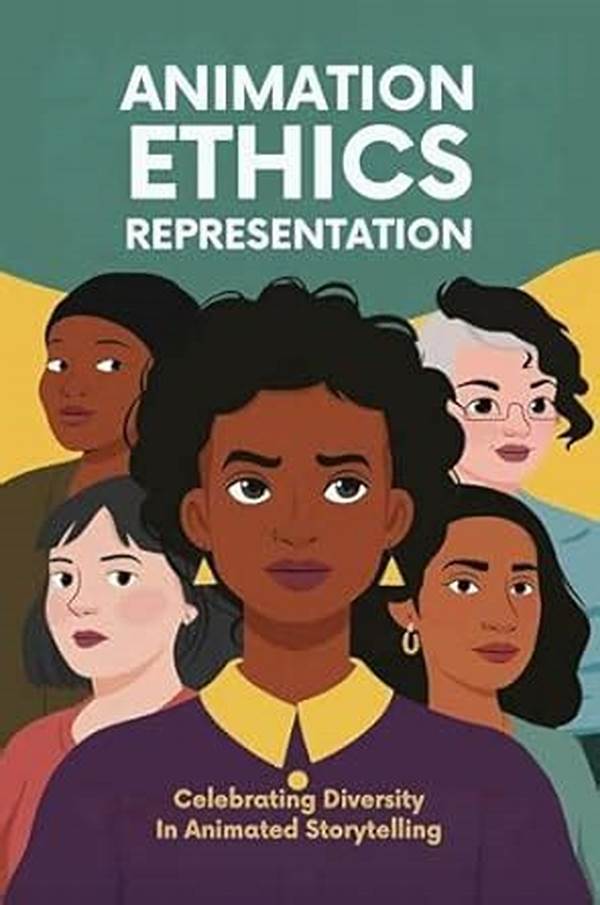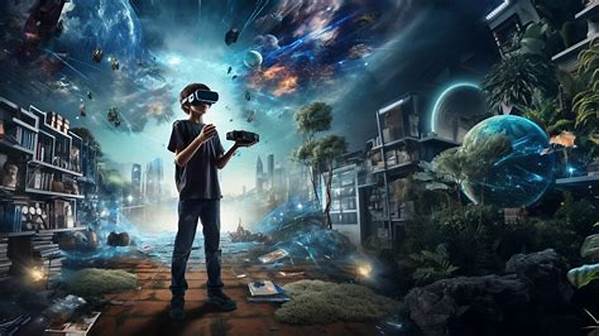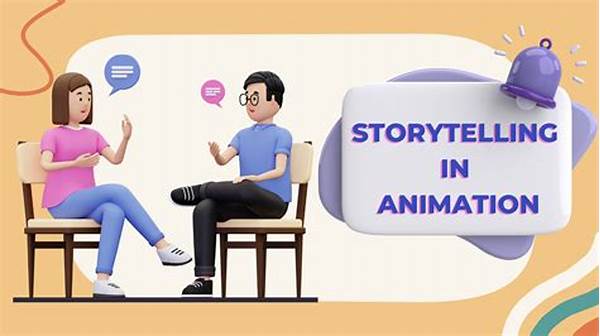In a world where animated media is more than just entertainment, it’s crucial to focus on ethical storytelling. We’re talking about the kind of narratives that not only captivate audiences but also inspire change and promote positive values. Animated stories can be powerful tools for addressing social issues and shaping culture; therefore, creators must commit to ethical storytelling. So, why should we care about the ethics behind animated media? Because what we watch shapes our views and attitudes towards the world. And let’s be real, in an era where everyone’s looking for that next big awakening, animated stories can either be mind-blowingly impactful or just another source of noise.
Read Now : Economic Challenges In Animated Storytelling
The Power and Responsibility of Ethical Storytelling
Ethical storytelling in animated media carries immense power, and with power comes responsibility. These animated stories aren’t just tales; they’re powerful narratives that can define mindsets and influence societal trends. Creators of animated media wield the unique ability to artistically address ethical dilemmas, offering audiences fresh perspectives on complex issues. Just imagine the impact of shedding light on critical topics like diversity, inclusion, and kindness through the colorful, engaging realm of animation. By embracing ethical storytelling in animated media, creators can break stereotypes, provoke thought, and ignite change, one animated frame at a time. It’s about crafting stories that not only entertain but also elevate consciousness.
Beyond just telling stories, ethical storytelling in animated media challenges prejudice and biases embedded within society. Imagine introducing characters that break away from conformity, embracing unique identities and struggles. This authentic portrayal encourages viewers to question norms and expand their understanding of different perspectives. Animated media, with its vast reach and engaging platform, can leave a profound impact on younger audiences, fostering empathy and kindness. Ethical storytelling becomes not just a creative endeavor but a moral obligation for creators who wish to utilize the art form for social advancement and a better tomorrow.
Reasons for Incorporating Ethical Storytelling
1. Influence Young Minds: Ethical storytelling in animated media can shape the minds and values of younger audiences.
2. Promote Diversity: It allows for a broader representation of ethnicities, cultures, and identities, promoting inclusivity.
3. Challenge Social Norms: Animated stories can tackle societal issues head-on, encouraging dialogue and change.
4. Encourage Empathy: By portraying diverse experiences, these stories foster empathy and understanding among audiences.
5. Cultural Impact: Ethical storytelling can redefine cultural narratives and set new standards for future tales.
Crafting Narratives with Ethical Integrity
Crafting narratives with ethical integrity in animated media isn’t just a goal; it’s a necessity. Imagine the ripple effect of portraying authentic, multifaceted characters that reflect real-world diversity. These stories provide not only entertainment but also become a tool for education and awareness. By addressing issues like gender equality, racial discrimination, and environmental responsibility, animated media has the potential to instigate meaningful discussions. Such narratives inspire individuals to think critically and, ultimately, act ethically in their everyday lives.
When creators commit to ethical storytelling in animated media, the impact goes beyond individual viewers. It sets a precedent for the industry, challenging others to also prioritize moral responsibility in their narratives. This commitment not only attracts an audience aware of and eager for change but also establishes trust and loyalty among viewers. As ethical concerns become increasingly prominent, animated media that embraces these values stays relevant and leaves a significant mark on society.
Benefits of Engaging in Ethical Storytelling
1. Builds trust and credibility with audiences.
2. Sets standards for industry competitors.
3. Appeases socially conscious consumers.
4. Establishes animated media as a tool for positive change.
5. Enhances storytelling depth and richness.
Read Now : Beloved Animated Animal Heroes
6. Encourages viewer reflection and introspection.
7. Differentiates media in a saturated market.
8. Supports a respectful, inclusive culture.
9. Fosters long-term viewer relationships.
10. Inspires creators and audiences alike to adopt ethical practices.
The Influence of Animated Narratives on Society
Animated stories are more than just visual spectacles; they possess the profound ability to influence societal values and norms profoundly. Ethical storytelling in animated media takes center stage in this influence, using the dynamic platform to reflect and shape cultural landscapes. Through relatable characters and compelling plots, these stories instill principles of justice, compassion, and acceptance. The world of animation offers a creative avenue where lessons on morality and ethical values are absorbed effortlessly by diverse audiences. Let’s face it: a good story transcends barriers and has the power to change mindsets for the better.
Moreover, animated media speaks a language that’s universal—appealing to all ages and backgrounds. It possesses an emotional resonance that can connect with people from all walks of life. Through exquisite storytelling intertwined with ethical considerations, creators have the opportunity to become pioneers of social change. It’s about telling tales that not only wow with stunning visuals but also challenge societal norms and motivate audiences towards a more understanding, inclusive world.
The Future of Ethical Storytelling in Animated Media
As we gaze into the future, the role of ethical storytelling in animated media becomes increasingly vital. With technological advances and expansive reach, animated stories have unprecedented potential to influence global audiences. Creators must recognize that their narratives are not just products but powerful tools capable of instigating social change. With ever-growing awareness around ethical and social issues, the demand for responsible, conscious storytelling continues to skyrocket.
Embracing ethical storytelling involves more than integrating surface-level moral lessons. It’s about embedding core values within the very fabric of the narrative. The challenge lies in going beyond conventional storytelling to address pressing issues, raise awareness, and foster unity. The future of ethical storytelling in animated media rests on the shoulders of creators brave enough to embrace this responsibility, advancing society through the magic of animation.
Summary: The Imperative of Ethical Narratives
The pursuit of ethical storytelling in animated media is a mission of utmost importance. In this rapidly evolving world, where audiences are progressively aware and critical of the content they consume, creators have a duty to inject morality into their work. Through powerful and poignant narratives, animated stories provide a unique platform to advocate justice, compassion, and societal improvement. They shape the ideals and values that will guide future generations.
Creators who embrace ethical storytelling contribute not only to their artistic legacy but to the broader societal fabric. This journey towards ethical integrity in animated media is one where both creators and audiences stand to gain immeasurably. It’s about telling stories that resonate, inspire, and ignite change, leading to a brighter, more inclusive future for all. Ethical storytelling in animated media isn’t just desirable—it’s essential, transforming the way we perceive and engage with the world.



